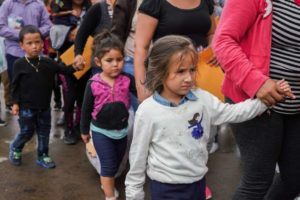
The Trump administration is unable to account for the whereabouts of nearly 1,500 migrant children who entered the United States alone this year and were placed with sponsors after leaving shelters, according to congressional findings released yesterday.
In findings that lawmakers described as troubling, Senate investigators said the department could not determine with certainty the whereabouts of these children the agency had placed with sponsors in 2018, based on follow-up calls from April 1 to June 30. The inability to track the whereabouts of migrant children after they have been released to sponsors has raised concerns that they could end up with human traffickers or be used as laborers by people posing as relatives.
Caitlin Oakley, a spokeswoman for the Department of Health and Human Services, offered a response to the findings; “As communicated to members of Congress multiple times,” she said, “these children are not ‘lost.’ Their sponsors, who are usually parents or family members have been vetted for criminality and ability to provide for them, simply did not respond or could not be reached when this voluntary call was made.”
The findings were accompanied by legislation introduced yesterday by Republican and Democrat senators to clarify the department’s responsibility for ensuring the safety of migrant children, even when they were no longer in its custody. The legislation would require officials at the Department of Health and Human Services to run background checks before placing children with sponsors and it also would compel the department to make sure that sponsors provide proper care for the children in their custody, including making sure they appear at their immigration court hearings.
Senator Richard Blumenthal Democrat of Connecticut, who also sponsored the legislation, said, “Children who risk their lives to make a dangerous journey in pursuit of asylum shouldn’t then have to worry about falling victim to human trafficking or being handed over to abusive or neglectful adults in the United States.”

Recent Comments